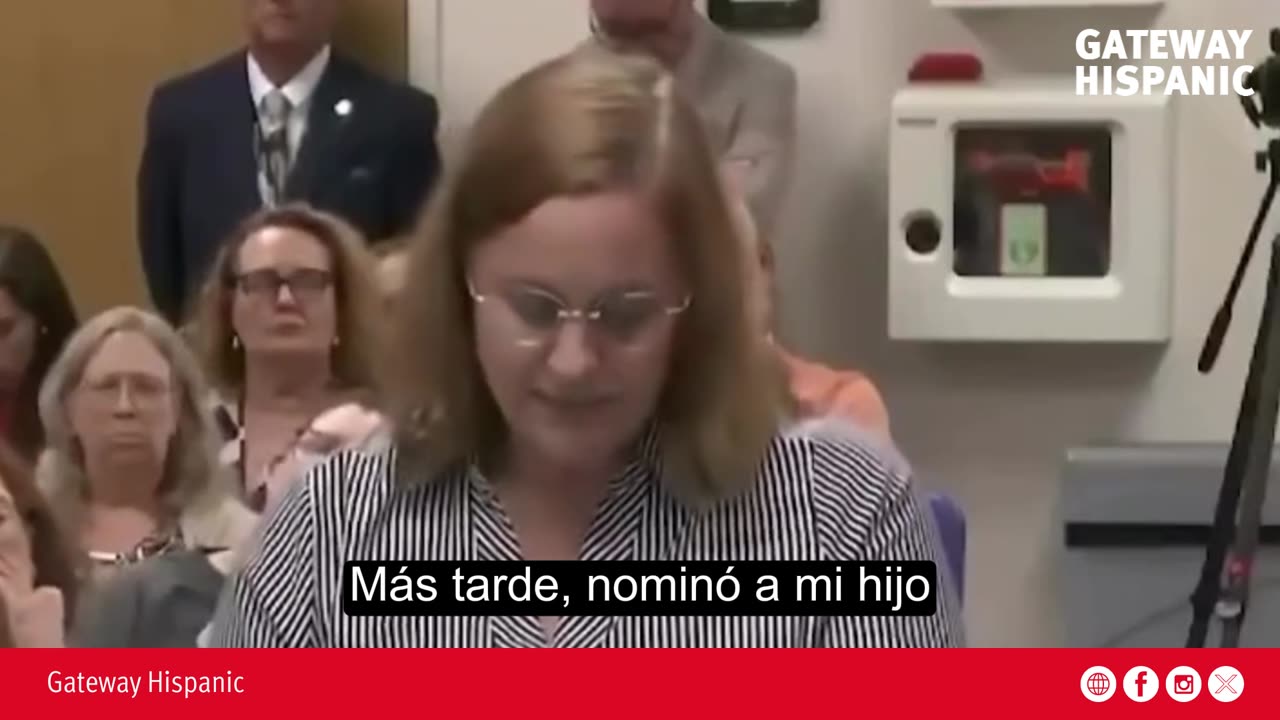Premium Only Content

Teacher Accused of Mockery and Discrimination Against Student with Conservative Values
A case of alleged ideological discrimination inside the classroom has sparked outrage among parents, after a history teacher was accused of encouraging mockery and inappropriate behavior toward a student because of his conservative values and his participation in extracurricular activities related to ROTC (Reserve Officers’ Training Corps).
The complaint was filed by the student’s mother, who recounted how her son —a high school student— was publicly singled out by his teacher in front of his classmates. According to her testimony, the teacher allowed students to label her son as a “Nazi” simply for showing interest in military history and being part of the ROTC program, a common activity in many U.S. schools that aims to develop leadership and discipline among young people interested in military or public service careers.
“Nominated as Dictator”
The incident did not stop there. The mother explained that, later on, the same teacher nominated her son as “most likely to become a dictator” during a classroom activity. The exercise consisted of giving students certificates with ironic or supposedly humorous categories chosen by the teacher himself. The teacher then asked the classmates to vote on the “nomination” and, after the results, tried to force the young man to go to the front of the class to receive the certificate.
“My son rightfully refused to take part in that mockery. What might seem like a joke to some was, for him, an unjustified public humiliation, clearly motivated by his ideas and values,” the mother said in her complaint.
The case has raised concerns about the limits of teacher conduct in the classroom and respect for ideological diversity. The mother argues that such behavior creates a hostile environment for students who do not share the same political views as the majority of their school environment.
Ideology and Freedom of Expression
The testimony places at the center of debate a sensitive issue in many American schools: ideological polarization and how it manifests in educational settings. While some argue that teachers should encourage critical thinking and create spaces for discussion, others warn that it has become common to ridicule or sideline students with conservative, religious, or patriotic beliefs.
The student’s mother believes the teacher crossed an ethical and professional line by allowing her son to be labeled a “Nazi,” a serious accusation loaded with historical and moral weight. “This kind of word is not innocent and should not be used lightly. Allowing classmates to call him that just for participating in ROTC or holding conservative values is completely unacceptable,” she said.
Possible Legal and Administrative Consequences
Although the name of the school and the teacher involved have not yet been revealed, the family is considering filing a formal complaint with the school administration and, if necessary, with the corresponding school district. Depending on the state, such cases can lead to administrative sanctions, internal investigations, and even legal action if harassment, discrimination, or violations of constitutional rights are determined.
Organizations defending religious freedom and free expression in educational environments have expressed interest in the case. For many of them, situations like this exemplify the “double standard” that can exist in some institutions, where diversity and tolerance are promoted, yet those who hold differing political views are excluded or ridiculed.
A Growing Debate
This incident adds to a series of recent controversies in the country related to political bias inside classrooms. While some parents accuse certain educators of ideological indoctrination, others argue that schools must safeguard free expression and foster mutual respect regardless of each student’s beliefs.
In this context, the complaint against the history teacher not only reflects one family’s grievance but also a broader debate about the role of educators, the limits of humor in school settings, and the need to ensure a safe environment for all students, regardless of ideology.
-
 LIVE
LIVE
SilverFox
15 hours ago🔴LIVE - ARC RAIDERS SERVER SLAM TEST! DAY 2!
91 watching -
 2:03:11
2:03:11
LFA TV
17 hours agoTHE RUMBLE RUNDOWN LIVE @9AM EST
125K13 -
 LIVE
LIVE
MrR4ger
4 hours agoWERE NOT GAY, WE JUST PLAY ARC RAIDERS W/ TONYGAMING AND AKAGUMO
23 watching -
 3:25:10
3:25:10
Retro Rewind Pod
13 hours ago $0.04 earned📺🌄 SATURCADE ADVENTURES is back! Saturday Morning Cartoon Feels and Gaming Fun
2.74K -
 43:57
43:57
Daniel Davis Deep Dive
4 hours agoDeep Dive Intel Briefing /Lt Col Daniel Davis
14.5K4 -
 LIVE
LIVE
blackfox87
6 hours ago🟢 SUBATHON DAY 16 | Premium Creator | #DisabledVeteran
101 watching -
 1:10:13
1:10:13
Wendy Bell Radio
8 hours agoPet Talk With The Pet Doc
26.9K20 -
 1:11:37
1:11:37
Mike Rowe
8 days agoDoes China Control The NBA? | Enes Kanter Freedom #453 | The Way I Heard It
50.1K67 -
 LIVE
LIVE
TheItalianCEO
22 hours ago24-hr Arc Raiders Stream
70 watching -
 1:15:41
1:15:41
Steve-O's Wild Ride! Podcast
1 day ago $4.15 earnedBert McCracken: The Unlikely Godfather of Hardcore Music
31.5K